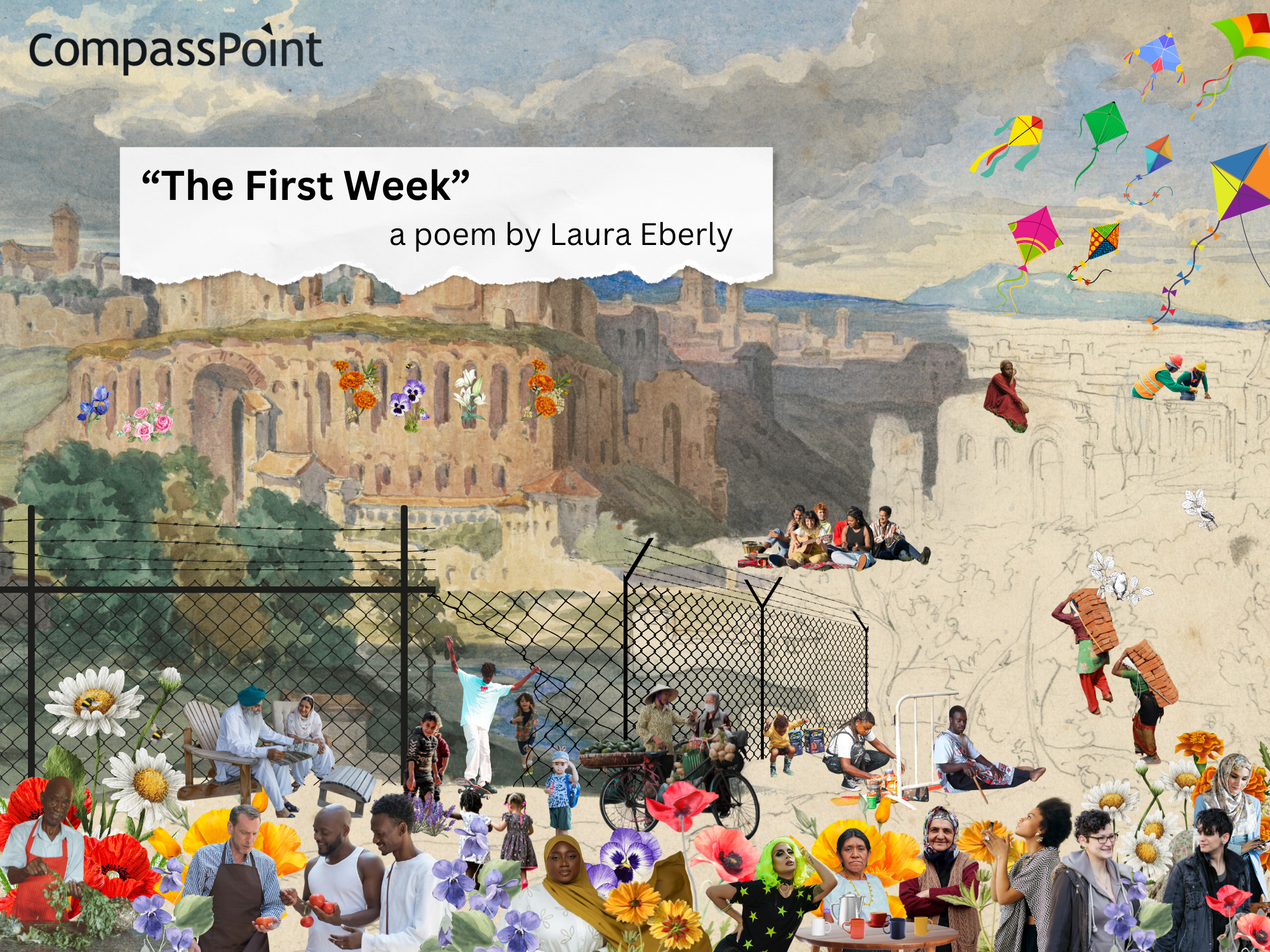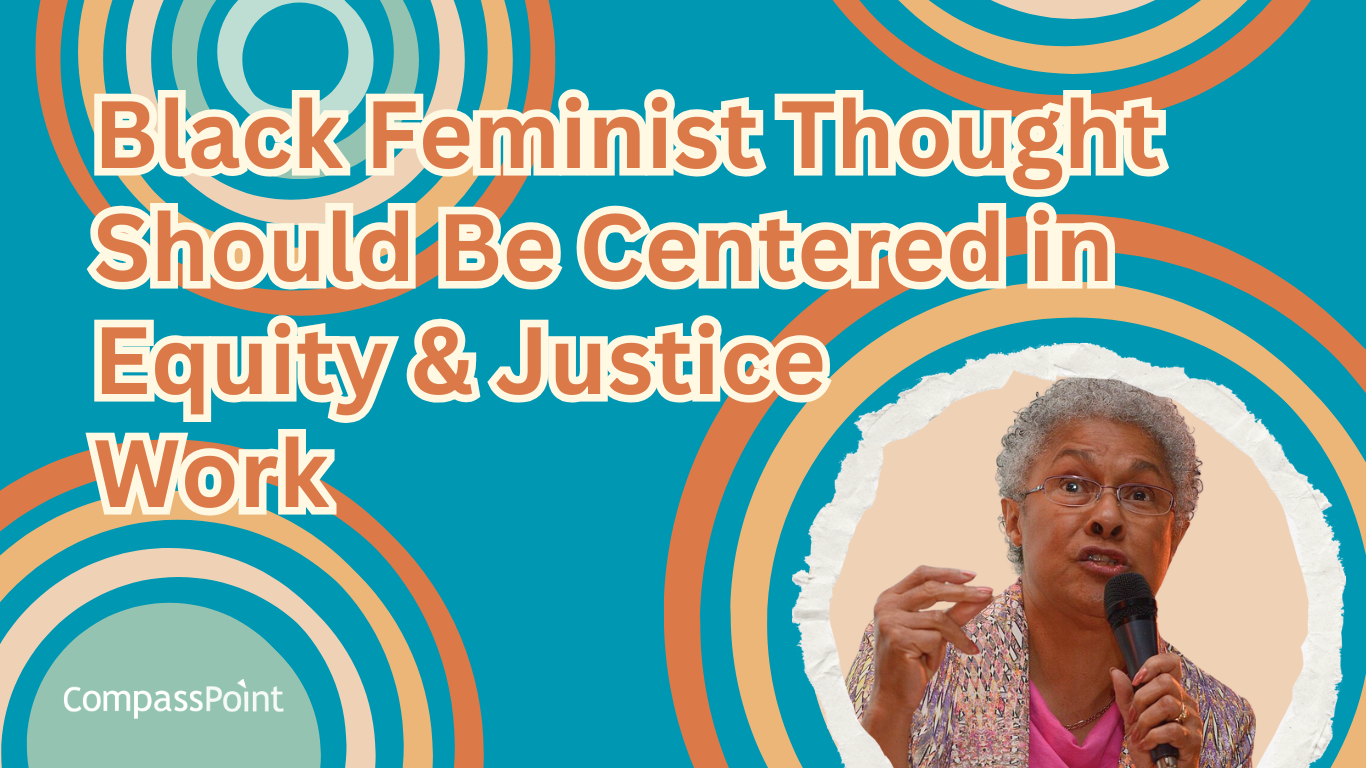We’re using our blog to share reflections and responses from our team as we navigate the reality of a COVID-19 world together. We hope you find ideas, affirmations, and inspiration here that help you think about what it means to lead right now and beyond this crisis.
These days, life feels like a jumble of absurd contradictions. Despite living in a global pandemic with a mandate to shelter-in-place, there is still a demand to function like “normal”. Our youth have to sign in to Zoom for Geometry class by 8:45 am, that grant report is still due in a week, bills need to be paid by the first, and my days are still packed with back-to-back virtual meetings.
In this moment of trying to live with some sense of normalcy whilst surrounded by chaos, we are being invited to define what is a necessity and what is excess. Emerging from this new clarity is the importance of relationships. Now, more than ever, relationships are pivotal not only to our success but to our survival.
One particularly important relationship within our organizations is supervision—or, as we call it at CompassPoint, practice partnership. The call to shift these relationships, which are so deeply rooted in connection and support, to the virtual space has been a challenge. But with feedback, grace, and the patience of my “practice partners”—here are a few important lessons I have learned along the way.
Honor individual needs
Think of a conventional corn farm. Regardless of droughts, floods, or other natural disasters, this field must produce (as much as possible) despite any and all circumstances. Acres of land are given the same task: produce tons of corn. In the process of achieving this goal, the soil is stripped and depleted, pollinators and wildlife seek refuge elsewhere, and the beauty of biodiversity is reduced to one single plant that will eventually cease to grow as the soil becomes barren. As someone tending to this crop, I rely on the same lifeless methods of uniformity to produce a crop of the same ilk.
Now, think of a lush garden. Each plant has different needs, some plants are newly sprouted, require shade, ample water, and rich compost. Some are mature and abundant, thriving in direct sunlight, needing little water, and sandy soil. Each plant has a unique contribution to the garden and is important in its own right. As a gardener tending to a rich diversity of plants, it is important that I take note of the individual needs that plants require to thrive and commit to those practices. With time and care, these plants will grow to become food, medicine, beauty, and life to humans, plants, and animals alike.
This metaphor serves as my first big learning about supervision. Applying the same practices of supervision for different individuals with vastly different needs can be depleting and transactional. This is especially true right now when countless factors make our needs so different—positionality, experiences (both lived and learned), access to technology, commitments to family—the list goes on and on. I’ve found that stepping into each relationship with attention to individual needs over productivity is the best course of action for this moment.
Three questions for centering relationships
To begin the dialogue, I start with these three questions:
- How are you adjusting to new realities around work?
- What support do you need right now?
- What support can you offer right now?
With so much urgency and crisis, it feels counterintuitive to make tending to tasks and projects secondary. But in order for us to do the important work that this moment calls for, we must first tend to our people and honor their individual needs, and make space for their unique contributions. This is the first step towards doing “the work” with integrity and wholeness.
Two questions for getting unstuck
“Hey, can I check in with you really quickly?” The power and effectiveness of a quick check-in is difficult to replicate, if not impossible, in this new virtual context. Information flow is different, access to people is different, and, as a result, feelings of disconnectedness and frustration grow. Unfortunately, we can’t change the fact that we won’t be together for the foreseeable future. As we figure out the hiccups and missteps of new systems, processes, and ways to collaborate from afar, supervision can be a powerful avenue for making meaning of these frustrations and shifting towards wholeness despite such a fragmented context. When one of my practice partners expresses frustration, disconnection, or tensions, I ask two questions:
- What are the structural barriers in your way?
- What are the internalized barriers in your way?
The first question is typically an easier question to answer. What information needs clarification? What processes are missing? What tools exist that can support you? Who can you collaborate with? In identifying the structural barriers, teasing this out can help answer a question in its entirety, or at least get you pointed in the right direction.
The second question is where it gets real. This is more challenging to grapple with as a supervisor, because the truth is, we can only help, coach, and support people up to a certain point. There is a moment when we each have to step into our agency and do the self-work to move past the lies of white supremacy, ignore the negative self-talk of patriarchy, and dance through to the other side. In order to move past internal barriers, we have to opt into our own healing. Luckily, we don’t have to heal alone.
Finding your voice, advocating for your ideas, and knowing that your feedback matters starts with self. As a supervisor, the best way I can support my practice partners in moments of frustration or disconnectedness is to help name the internalized barriers and affirm their gifts and ability to move through them. This requires deep listening and humility—knowing that the most effective solutions come from those most directly impacted. This leads me to my next learning...
Leading and listening with curiosity
I first learned the power of a question during my time working with youth. I was taught that the best teachers don’t provide answers to questions, but instead pose more questions, and approach teaching as learners, not as experts.
In practice, I found these values extremely challenging to step into. After all, we’ve been taught that teachers are the experts with all of the answers and that students are “a blank slate”, waiting to be filled with the expert’s knowledge. But this instinct and belief deprives students of tapping into their inherent knowledge and intelligence, leaving them with educational experiences that are at best transactional and at worst dehumanizing.
Whether it’s because of positional differences, age gaps, or diverging experiences, in most supervisorial relationships there are dynamics of power and paternalism at play that are similar to that between student and teacher. These are not truths that we should turn away from, but things we can name, examine, and build practices to shift away from. Much like an effective teacher, when a supervisor examines their own instinct to be an “expert” and instead offers space for critical thinking and curiosity, mutual perspectives are affirmed and knowledge grows in depth.
We work for organizations that proudly claim to believe in the beauty of diversity and have mission statements that seek to change the world we live in for the better, but these beautiful ideas cannot just live on our websites—they have to come alive in our relationships with one another. When we honor individuality, challenge the roles of “expert” and “student”, and trust that our challenges and failures will be met with curiosity and opportunities for critical thought, new worlds become possible.
Big shout out to all of my practice partners and students—you are my greatest teachers.
Hana Lee is a project director at CompassPoint.
Related CompassPoint blogs:
- Pushing Back Against Habits of White Supremacy During a Crisis
- Grounding, Love, Chaos, and Grief: Parenting and Organizational Leadership During Covid-19
Watch:






Submit a comment